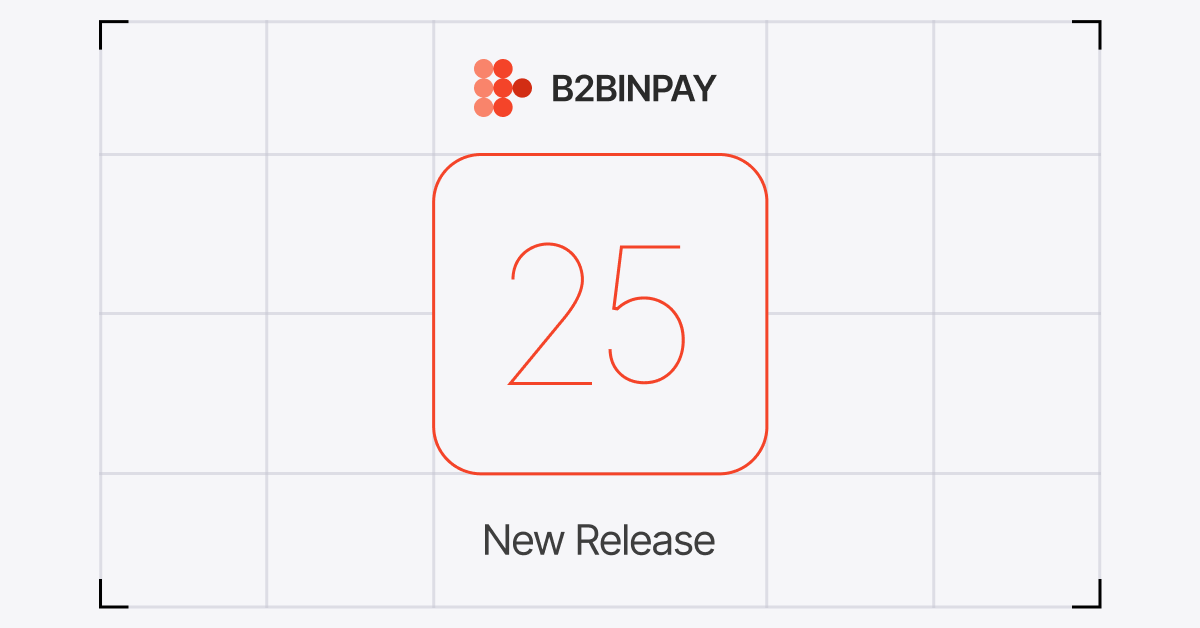Bitcoin is a finite currency with a maximum supply of 21 million coins. In theory, this scarcity should result in a continually increasing valuation as demand for the remaining coins increases. What many people may not realise is that a large portion of the Bitcoins mined today is lost forever. This loss, estimated to be between 17-25%, has a hidden impact on Bitcoin's true valuation.
In this article, we will explore the fate of these lost assets and how they affect the value of the world's most popular cryptocurrency.
What Happens to Lost Bitcoins?
When Bitcoin is lost, it becomes irretrievable and permanently unspendable. The blockchain still records these bitcoins at a specific address, but without the private key, they cannot be moved or spent. Thus, these coins remain "there" but are effectively gone forever.
Determining exactly how many BTC are lost forever is challenging. In Bitcoin's early days, many individuals did not foresee the potential future value of their holdings, leading to numerous unfortunate losses, thefts, and mistaken transactions.
How Much Bitcoin Is Lost Forever?
It is estimated that between 3 to 4 million coins will never be recovered, effectively reducing the total Bitcoin supply from 21 million to approximately 17 to 18 million. Moreover, if Satoshi Nakamoto's bitcoins remain dormant indefinitely, this further lowers the effective cap to about 16 million BTC.
A study by Chainalysis, a forensic firm, estimated that approximately 3.7 million bitcoins were lost as of 2020, out of the total number of 21 million tokens that will eventually be mined. This loss represents nearly 19% of the current supply presumed to be irretrievable.

Impact of Lost Bitcoins on the Bitcoin Valuation
The concept of scarcity is central to economic theory, where a resource's value is heavily influenced by its availability. In the realm of Bitcoin, scarcity is enforced by an algorithmic cap, limiting the total number of coins that can be mined to 21 million. The built-in limitation echoes the finite nature of real-life assets like precious metals, which have historically maintained their value.
Missing bitcoins further contribute to the currency's scarcity. The total active supply diminishes once these coins are effectively removed from circulation. Coupled with constant or increasing demand, the reduction in supply is expected to drive up the price of the remaining bitcoins even further.
The halving events in Bitcoin's lifecycle contribute to the Bitcoin scarcity factor even further. Halving reduces the incentive to mine new blocks, thus decreasing the rate at which new coins are introduced to the system. Combined with the ongoing loss of coins, it greatly contributes to a squeeze on cryptocurrency's supply, increasing the demand and value of remaining coins in the long run.

How Are Bitcoins Lost?
There are several ways in which bitcoins can be lost, ranging from simple user error to malicious attacks. Some of the most common reasons for losing coins include:
Private Key Mismanagement
The security of digital assets hinges on the control of private keys, which are complex alphanumeric strings uniquely associated with cryptocurrency wallets. Whoever possesses the private key has control over the assets within that Bitcoin wallet.
However, the loss of a private key equates to the loss of digital assets since these keys cannot be recovered once lost. To mitigate this risk, it is recommended to physically store keys on paper in secure locations, using hardware wallets and employing encrypted software wallets.
Hardware Wallet Failures
Hardware wallets provide an elevated level of security by storing private keys offline, protecting them from online threats such as hacking and malware. Despite their robust design, hardware wallets are not immune to physical damage, loss, or theft.
Critical to recovering assets from such wallets is the seed phrase, a series of words that allow the restoration of private keys on a new device. Multiple secure backups of the seed phrase should be maintained to ensure recovery options remain viable even if one backup is compromised.
Sending to Wrong Addresses
One of the irreversible actions in cryptocurrency transactions is sending funds to an incorrect address. Once a transaction is confirmed on the blockchain, it cannot be reversed, making the recovery of funds dependent on the recipient's willingness to return them.
Preventative measures include double-checking addresses before executing Bitcoin transactions and understanding that features like the 'retrieve' function on exchanges are limited and time-sensitive. Additionally, the use of blockchain explorers can help track the movement of funds, although this does not guarantee recovery.
Abandoning Cryptocurrency Holdings
Lastly, a common means of losing bitcoins is through abandonment, including forgetting the keys to wallets or accounts on centralised exchanges and the unfortunate passing away of owners with no one knowing their holdings. Without clear nomination processes or backup plans in place, these assets may be lost forever.
Cases of Bitcoins Lost Forever
Many notable cases of lost bitcoins have garnered media and public attention.
Satoshi Nakamoto's Holdings
Satoshi Nakamoto, Bitcoin's original developer, is believed to hold around 1 million bitcoins, making them the wealthiest Bitcoin holder. However, this fortune hasn't been touched since early mining efforts when blocks were relatively easy to mine. As long as these coins remain dormant, they will effectively be lost forever. Speculation suggests that if any of these coins are ever spent or moved, it may significantly affect the market.
James Howells' Infamous Hard Drive
James Howells, a UK citizen, became infamous in the crypto world in 2013 when he accidentally discarded a hard drive housing 7,500 Bitcoin. The value of the discarded Bitcoin, accounting for today's rates, is over $510 million. Despite repeated efforts, the hard drive, believed to be sitting somewhere in a landfill in New Port, Wales, remains lost.
Stefan Thomas' Lost Fortune
Across the Atlantic, Stefan Thomas, a programmer and former CTO at Ripple, faced a parallel situation. After misplacing the password to his Iron Key, a hard drive designed to be invincible to all forms of violation, he was left with a mere two tries before his 7,002 Bitcoin would be irreversibly locked away. Despite a well-publicised offer for assistance from crypto recovery experts Unciphered in October, Thomas appears to be no closer to recovering his lost fortune.
The QuadrigaCX Incident
Gerald Cotten, the CEO of QuadrigaCX, died unexpectedly during a honeymoon trip to India in December 2018. Cotten alone possessed the keys to his companys cryptocurrency vault, which housed millions of dollars of customer investments. His untimely death resulted in investors' funds becoming inaccessible.
The situation escalated when the Ontario Securities and Exchange Commission discovered that Cotten had orchestrated fraudulent trades, depleting most of the exchange's funds even before his death.
Is It Possible to Recover Lost Crypto?
Even in the unfortunate event of asset loss, users may still have hope for crypto-asset recovery. The success of reclaiming lost digital assets depends on the available reconstruction information and the context of the loss.
The recovery of data is one promising strategy for mitigating losses. Many specialised firms in the cryptocurrency sector excel at locating and restoring lost Bitcoin. These experts handle a wide array of scenarios, from drive malfunctions and hardware failures to misplaced passwords, wallet corruption, data loss, and misdirected transactions. They employ various techniques, including brute-force seed phrase reconstruction, wallet rebuilding, password recovery, and extracting keys hidden in hard drives.
Success rates for these firms often improve if they can access the original device or computer, enabling them to reverse-engineer access to the forgotten assets. However, users should be aware of the challenges posed by the cryptographic principles underlying Bitcoin. Fully reconstructing a misplaced seed phrase is a monumental task, given the current limits of computational capabilities.
We recommend engaging with companies that have a proven track record and positive reviews. The market is rife with scams and overpriced services that offer little to no return.
In cases where users have been victims of scams or hacks involving significant sums, there are also private investigation firms that can provide valuable assistance. Equipped with a host of investigative tools, they often collaborate with law enforcement authorities to track down culprits and find lost bitcoins.
How to Prevent Bitcoin Loss?
To mitigate the risks of bitcoins lost forever, individuals should adopt stringent security measures.

Diversify Storage Types
A key aspect of preventing the loss of your cryptocurrency is diversifying your storage methods. Spreading your bitcoins across multiple storage types enables you to mitigate risk, making it less likely that a compromise in one storage option will lead to the loss of all your assets.
Utilise a Hardware Wallet
Arguably the most secure way to store your digital currencies, hardware wallets provide an excellent defence against loss. They are physical devices that store the private keys to your Bitcoin addresses offline, making them impervious to hacking attempts that typically target online software Bitcoin wallets.
How to set up such a wallet?
- Acquire a reputable hardware wallet: Known for their robust security features, Ledger and Trezor are popular options in the market.
- Set up PIN and Recovery Phrase: During the initial setup of your hardware wallet, you will be prompted to generate a unique PIN and a recovery phrase. As your crypto assets are stored in these, recording and storing them properly is important.
How do you safely execute transactions with a hardware storage device?
- Connect your hardware wallet to your system: You can establish a connection via USB or wirelessly.
- Verify transaction details: Always ensure that the transaction details displayed on the hardware wallet's screen are cross-checked.
- Confirm transaction: After verifying the details, you will approve the transaction by providing your PIN or passphrase. This step signs off the transaction securely.
Do not forget to execute post-transaction measures.
- Disconnect and store: Upon concluding your transactions, disconnect your hardware wallet and keep it in a secure location.
- Confirm transaction status: Utilise a blockchain explorer to follow up on your transaction status and ensure its addition to the blockchain.
While using hardware wallets might seem complicated initially, their value in offering top-notch security to Bitcoin owners cannot be understated. The process of setting up and carrying out transactions requires care and attention for safe and secure digital asset management.
Use a Two-Layered Storage Strategy
An effective way to manage risk is employing a two-layered storage strategy:
- Hot Wallet Hot wallets, being online, are fast and convenient for interactions with online services. You provide this wallet address to exchanges when withdrawing or depositing or when using decentralised applications (dApps).
- Cold Storage Following your online transactions, or when you have some crypto that you want to hold long-term, transfer them to a cold wallet for secure, offline storage.
Keep a Physical Record
As an additional step towards securing your precious Bitcoin, experts recommend keeping a physical record of private keys and recovery phrases. This backup can be a simple piece of paper or a metal engraving kept in a secure place like a safe.
Final Remarks
Significant relevance is attributed to lost bitcoins when determining the valuation of this digital asset, anchoring the crucial relationship between scarcity and demand that dictates the digital asset's value. With the crypto market's remarkable growth trajectory, the need for users to implement substantial security protocols and be well-versed in risk reduction techniques has become more critical than ever.



.svg)






